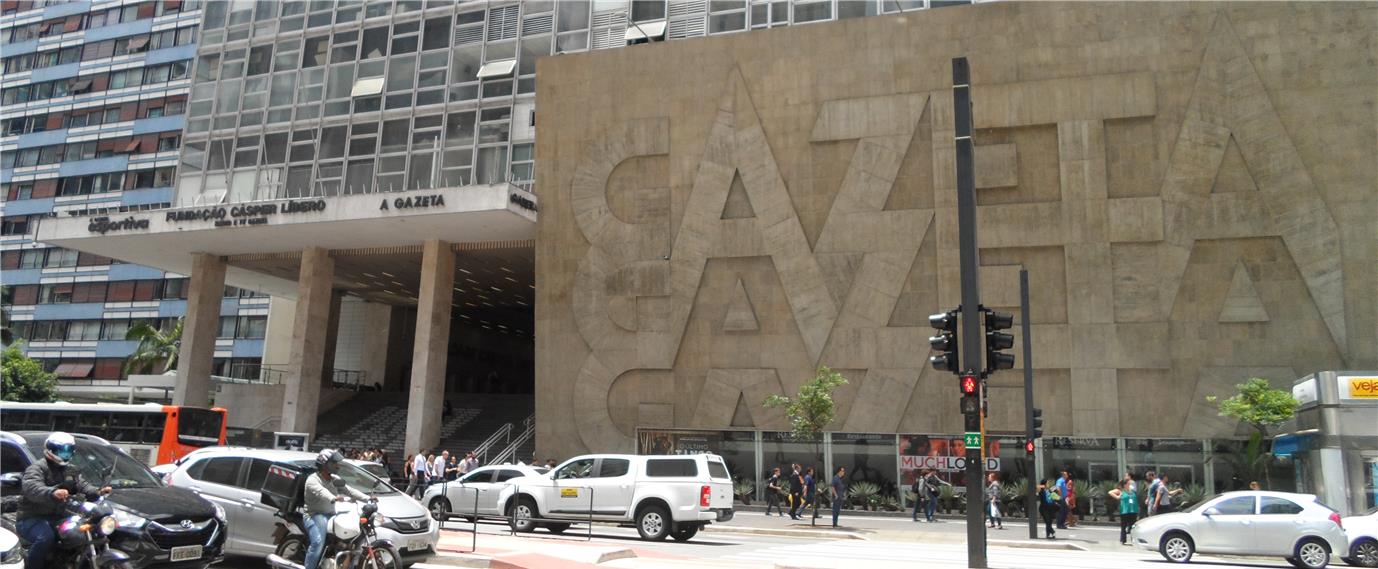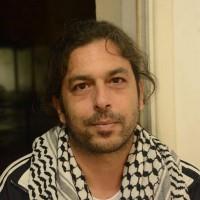يوجد في البرازيل 300 كلية إعلام خاصة وعامّة في كل ولايات البلاد، يتخرج منها حوالي 6000 طالب سنوياً، 25,2% من هؤلاء يُسجّلون في نقابة الصحفيين بحسب دراسة أعدّها "الاتحاد الوطني للصحفيين FENAJ" و نشرها عام 2012، بينما يضطر بقية الخريجين للعمل بعقود عمل فردية، لا تلتزم وسائل الإعلام تجاههم بأي ضمانات، بل تستغلّهم بساعات عمل تمتد بين 10 و12 ساعة يومياً.
تستهدف وسائل الإعلام الطبقات الفقيرة التي تعيش أوضاعاً بائسة، حيث هنالك 12 مليون برازيلي تحت خط الفقر، أي ما نسبته 5,9% يعيشون بأقل من 1.25 دولار يومياً، و18% يعيشون على خط الفقر أو فوقه بقليل بحسب دراسة أعدّتها مجموعة "Cepal" الاقتصادية الشهيرة على مستوى عموم أميركا اللاتينية، ونشرتها صحيفة "Estadao" الخاصة في منتصف 2015.
في تلك البيئة ينتعش منسوب العنف والجريمة والمخدرات والسطو المسلح، في حين تمتلك ست عائلات متنفّذة وقريبة من السلطة 70% من مجمل وسائل الإعلام البرازيلية، في مخالفة واضحة للمادة 220 من دستور البلاد، والتي تنص على: "عدم السماح باحتكار وسائل الإعلام من أي أقلية كانت، بشكل مباشر أو غير مباشر". مخالفة هذه المادّة نتاج جملة من العوامل التي تتشابك مع مشاكل تاريخية أخرى، أنتجت فيما بعد الإعلام البرازيلي بشكله الحالي، وأنتجت أيضاً تعايشاً حذراً بين احتكار هذه العائلات للإعلام، وأغلبية يسارية من الصحفيين البرازيليين الرافضين لهذا الواقع، تتجاوز نسبتهم 49% بحسب دراسة أعدها "الاتحاد الوطني للصحفيين" (FENJA) بالتعاون مع "الملتقى الوطني لأساتذة الصحافة" (FNPJ)، فيما تصل نسبة الصحفيين المستقلين إلى 30% والباقي للصحفيين المنتمين لتيارات اليمين بمختلف تصنيفاته.
بدايات نشوء وسائل الإعلام
تمتد مسيرة الإعلام البرازيلي إلى أكثر من مائتي عام خلت، بعد أن صدرت صحيفة "correio Braziliense"، أو "بريد البرازيل" عام 1808 كأول صحيفة خارج البلاد، وتحديداً في لندن بسبب معارضة مؤسّسها هيبوليتو خوسيه داكوستا للملك جواو السادس، والذي كان قد نقل مركز حكمه من البرتغال إلى البرازيل خوفاً من أطماع نابليون بونابرت في شبه الجزيرة الأيبيرية. إلا أن حكمه لم يستمر طويلاً، حيث نالت البرازيل استقلالها عن البرتغال عام 1822، لتنتعش الصحافة فيما بعد، وتنطلق العديد من الصحف من داخل البرازيل.
بينما انطلقت أول محطة راديو في البرازيل في 7 سبتمبر/أيلول 1922، أي في الذكرى المئوية الأولى لاستقلال البرازيل في مدينة ريو دي جانيرو بمبادرة من "الأكاديمية البرازيلية للعلوم"، قبل أن ينتشر بعدها بأعوام قليلة في أغلب ولايات البلاد، ابتداء من ولاية باهيا ثم ساوباولو وريو غراندي دي سول وغيرها، في حين أصبحت المؤسسة العامة للبريد والبرق الفدرالية هي المسؤولة عن خدمات البث الإذاعي لإذاعة "EMC" بعد أن أصبحت منذ العام 1940 الإذاعة الرسمية للحكومة البرازيلية.
عام 1950 افتُتحت أول محطّة تلفزيونية بساوباولو "قناة 3"، وبعدها بعام واحد افتتحت "القناة 6" في ريو دي جانيرو، وكانت القناتان تبثان ما بين 18 إلى 22 ساعة يومياً أخباراً منوعة.
وعام 1959، سنّت وزارة العدل أول تشريع ينظم رقابة التلفزيون في البرازيل، إلا أنه بعد سقوط الدكتاتورية العسكرية عام 1985، سقطت الرقابة وأعيد تقييم البرامج التلفزيونية، وبهذا تم تسليط الضوء على قضايا كثيرة لم يكن بالإمكان الحديث عنها فيما مضى، كقضايا السياسة والثقافة والإبداع والحريات والمرأة التي أفردت لها شبكة "غلوبو" قناة خاصة.
حتى هذا التاريخ، لم يكن هنالك أي كليّة للصحافة والإعلام في البرازيل، حيث افتتحت أول كلية حكومية للإعلام عام 1958 بمبادرة من الحكومة الاتحادية في مدينة "جويس دي فورا" (Juiz De Fora) في ولاية ميناس جيرايس، لتتبعها كلية الإعلام في جامعة ساوباولو في العام 1966. أما أول كلية إعلام خاصة، فقد نشأت بعد أن أوصى بها الصحفي كاسبر ليبيرو رئيس تحرير جريدة "غازيتا" والتي كانت أكبر صحيفة في أميركا اللاتينية في أربعينيات القرن الماضي، أوصى قبل موته بإنشائها في ساوباولو وهي كلية "آ غازيتا" (A Gazeta)، وتضمنت الوصية وقتها أن تقوم الجامعة بتدريس كل العلوم الإنسانية، كالأدب والفلسفة وغيرها، وأن تكون هذه الجامعة على علاقة مع الصحيفة التي كان يترأس تحريرها بالإضافة للإذاعة التي كان يملكها وتحمل نفس الاسم، والمجلة الرياضية الأسبوعية "gazeta esportiva".
بدأت الجامعة العمل بشكل رسمي عام 1974 بالتعاون والتنسيق مع جامعة خاصة أخرى هي "الجامعة الكاثوليكية" التي لم يكن بها كلية صحافة، وذلك لتجاوز مسألة الترخيص والعقبات البيروقراطية في ذلك الوقت.
الطريق إلى كلية الصحافة
لا يحتاج الطالب الراغب بالانتساب إلى كليات الصحافة، العامّة أو الخاصة، لمجموع محدّد من العلامات بعد إنهاء مرحلة التعليم الثانوي، بل تعتمد هذه الكليات على مسابقات الدخول، وهي عادة ما تكون أصعب في الجامعات الحكومية المجّانية، حيث على الطالب إنهاء الأربع سنوات في ست سنوات كحد أقصى. تنقسم كل سنة دراسية إلى فصلين، مجموع الساعات النظرية التي على الطالب إنجازها طوال فترة الأربع سنوات هي 2370 ساعة من الدراسة النظرية داخل قاعات المحاضرات، و3240 ساعة في التطبيق العملي خارجها. يدرس الطالب فيها النظريات الاقتصادية وتقنيات الطباعة والتصوير والفلسفة والتاريخ واللغة وغيرها.
بينما لا تعتمد الجامعات الخاصة، كجامعة "Faculdade casper libero" الخاصة على نظام الفصول، مع أن المواد متشابهه إلى حد بعيد مع المواد التي تدرّس في الجامعات العامّة، بل على الطالب حضور 2592 محاضرة، مدّة كل محاضرة 50 دقيقة، وهو ما يعادل 2160 ساعة في الأربع سنوات، عدا عن التطبيق العملي 310 ساعات و210 ساعات من التدريب في أي وسيلة إعلام و320 ساعة للاختصاص، أي أن مجموع الساعات يجب أن يقارب الـ3000 ساعة.
يتم تجديد المختبرات وكل التقنيات والاستوديوهات والكاميرات التي يتدرّب عليها الطلاب سنويا، سواء في الجامعات العامّة أو الخاصة. بينما تعتمد كل جامعات البرازيل على مشاريع التخرّج، والتي قد تكون برنامجاً تلفزيونياً أو إذاعياً أو صحيفة أو كتاب لتخريج الطلاب.
يستطيع الطالب بعد إنهاء السنوات الأربع، متابعة دراساته العليا (دبلوم/ ماجستير/ دكتوراه) مباشرة دون أي شروط.
الصعوبات التي تواجه المهنة
وهي تنقسم إلى فترتين:
فترة الحكم الدكتاتوري 1964 – 1983:
كانت بداية التضييق على الصحفيين قد بدأت منذ 13 ديسمبر/كانون أول 1968، عندما أصدرت السلطات العسكرية الحاكمة في البرازيل قانون "الرقابة المسبقة" والذي اشتهر فيما بعد بقانون "AI - 5" للحد من حرية الصحافة، وقد تولّت الشرطة الاتحادية تطبيق هذا القانون، فأصبحت هي الجهة الوحيدة المشرفة على عمليات النشر والبث، فكانت أعلى نسبة اضطهاد تعرض لها الصحفيون في ولايتي ريو دي جانيرو وساوباولو لأنهما مركز النشاط السياسي ضد الحكم الدكتاتوري، حيث وصلت نسب الاضطهاد إلى ما بين 20% و 34% من الصحفيين. حوالي 10% من هذه النسبة تعرّضوا لمصادرة حقوقهم السياسية، بينما تعرّض 23.3% للاعتقال و12% للتعذيب، قُتل في هذه الفترة العشرات من الصحفيين، كان أشهرهم "فلاديمير هيرتسوغ" و"جايمي أمورين دي ميراندا"، بحسب التقرير الذي نشره "لوسيانو ناسيمنتو" مراسل وكالة أنباء البرازيل على موقع "agencia brasil" يوم 6 نوفمبر/تشرين الثاني 2014.
ما زال قسم كبير من صحفيي البرازيل الذين لوحقوا في تلك الفترة يعانون إلى اليوم، وهو ما حدث مع الصحفية "لوسيا رودريغوس" التي كانت تعمل في "Radio Brasil Atual "، عندما انتقدت عام 2013 الكولونيل باولو تيليادا، وهو المتهم بقتل حوالي 36 شخصاً في فترة الحكم الدكتاتوري، بعد أن ترشّح لبرلمان ساوباولو، فاتهمته بتوظيف أناس في البرلمان مقابل بعض المال الذي قبضه منهم لدعم حملته الانتخابية، ليقوم برفع دعوى قضائية ضدها، اتهمها فيها بتشويه سمعته. خسر القضية، لكنه استخدم نفوذه لفصلها من عملها، وهو ما سلّط الضوء على استمرار نفوذ رجالات تلك المرحلة وهيمنتهم على وسائل الإعلام إلى اليوم.
المرحلة الثانية وتمتد من العام 1983 إلى اليوم:
تميزت هذه المرحلة بصدور العديد من القرارات التي لاقت سخطاً كبيراً من شريحة واسعة من الصحفيين، فحتى تاريخ 17 يونيو/حزيران 2009 كانت ممارسة مهنة الصحافة تحتاج لشهادة من إحدى كليات الصحافة المنتشرة في البلاد، بالإضافة إلى بطاقة تعريف من نقابة الصحفيين أو إحدى وسائل الإعلام، إلا أن "شركة راديو وتلفزيون الاتحاد" في ولاية ساوباولو تقدّمت بدعوى قضائية تطالب فيها بإلغاء إلزامية الحصول على دبلوم الصحافة لممارسة المهنة وكسبت الدعوى، فأصبح بإمكان أي مواطن برازيلي ممارسة المهنة دون قيود.
وتؤكد المادّة الرابعة من القرار رقم (1) الصادر في 27 سبتمبر/أيلول 2013 عن غرفة التعليم العالي في وزارة التعليم، على ضرورة إعداد الصحفيين وتدريبهم، إلا أن وسائل الإعلام لم تكترث به، وهو ما أثار زوبعة من الاحتجاجات، إذ اعتبر فرانسيسكو خوسيه كرم، أستاذ الصحافة في جامعة سانتا كاتارينا الاتحادية، أنه "ما زال هناك حاجة ملحة للدراسة الأكاديمية كي يفهم الطالب آداب وأخلاق المهنة، ويكتسب الخبرة والقدرة على التمييز والتفريق بين النصوص المكتوبة للتلفزيون والراديو والصحيفة والمجلة أو الإنترنت".
بينما تعطي دنيز أودريسي وهي مراسلة قناة "هيكورد" التلفزيونية "record" الخاصة مثالاً.. "30% من الصحفيين العاملين في جريدة "فوليا دي ساوباولو" لم يدرسوا الصحافة.. المسألة صعبة بالنسبة لخريجي الصحافة، لكن ذلك ليس سيئاً بشكل دائم، بمعنى أن هنالك بعض الاقتصاديين الذين يعملون في مجال الصحافة الاقتصادية، وهم الأقدر في الحديث عن الأسعار والضرائب والأموال من غيرهم".
العنف ضد الصحفيين
"تعتبر البرازيل واحدة من أكثر دول أميركا اللاتينية عنفاً وخطورة على الصجفيين في ظل عدم وجود آلية وطنية لحمايتهم في مناخ الإفلات من العقاب الذي يغذيه الفساد في كل مكان".
بهذه النبذة تفتتح " منظمة مراسلون بلا حدود" شرحها عن واقع الصحافة في البرازيل على موقعها الإلكتروني.
مجموعة "المادّة 19"، منظمة مستقلة لحقوق الإنسان وجزءٌ كبير من أعضائها صحفيون في البرازيل، وهي منتشرة في عدة دول في العالم، اتخذت اسمها من المادة 19 من الإعلان العالمي لحقوق الإنسان الذي يضمن حرية التعبير. وثقت هذه المجموعة نسبة 56% من حالات الاعتداء على الصحفيين في عموم البرازيل عام 2013 التي تم الحكم فيها على المعتدين، فيما لم تصدر أي أحكام في النسبة الباقية 54%. تعزو المجموعة هذه المشكلة إلى العلاقة الوثيقة بين السلطات السياسية والاقتصادية وبعض أعضاء السلطة القضائية وتورّطهما بالفساد معاً.
تأثير مستمر لتداعيات الحكم الدكتاتوري
مازالت تداعيات الحكم الدكتاتوري مؤثّرة وتفرض سطوتها على الإعلام البرازيلي إلى اليوم، هذه هي الصورة العامّة للإعلام في البلاد، وهذا ما يؤكّده جواو براغا، أستاذ التاريخ في كلية بيدرو الثاني في مقال نشره على موقع "capitalismo em desencanto" بتاريخ 1 أبريل/نيسان 2015، إذ اتهم فيه روبيرتو مارينيو، رئيس مجلس إدارة شبكة غلوبو (راديو وصحيفة حتى ذلك الوقت) بـ"مساعدة العسكر على الانقلاب عام 1964، بما أنه يعتبر شخصية نافذة بسبب تشعب علاقاته مع السلطة العسكرية، ولهذا، افتتح روبيرتو مارينيو قناة "غلوبو" التلفزيونية بالتعاون مع مؤسسة "time life" الأميركية في العام التالي للانقلاب العسكري عام 1965، قبل أن تتحول غلوبو إلى إمبراطورية بالغة الضخامة مستفيدة من التقدمات المالية الحكومية في حينها. اكتشف فيما بعد أن هنالك العديد من المخالفات في العقد بين شركتي غلوبو وتايم لايف الأميركية، إلا أن السلطات العسكرية تجاهلت الموضوع بسبب حاجتها لشبكة إعلامية تروج لها وتتجاهل انتهاكاتها".
وقد استخدمت شبكة غلوبو وغيرها من وسائل الإعلام التي كانت على علاقة جيدة بالسلطة العسكرية، للهجوم على المنظمات اليسارية كحزب العمال الذي استلم السلطة فيما بعد "اتحاد نقابات العمال"، وهو ما أثر بالفعل على ترشح لولا دا سيلفا في العام 1989 وأدى لسقوطه في تلك الانتخابات، حيث وصف لولا وقتها على شبكة غلوبو بأشنع الأوصاف كـ "الفاشي" و"هتلر".. إلخ.
بعد سقوط الحكم العسكري، استمرت شبكة غلوبو بنفس القوة، وقد تضخّمت لتمتلك عدّة إذاعات وصحف وقنوات تلفزيونية في الوقت الحاضر.
ما ينطبق على شبكة "غلوبو" العملاقة، ينطبق على العديد غيرها، في مخالفة واضحة للدستور والقوانين المتضاربة أصلاً، وتعارض واضح بين ميل الغالبية العظمى من الصحفيين ووسائل الإعلام التي يعملون بها، والتي لا تكترث في الغالب للمعايير المهنية بقدر ما يعنيها تقديم مواد توجّه المتلقي حسب ما تقتضيه مصالح مالكي وسائل الإعلام.
يمكن القول أيضاً، إن العبور باتجاه إصلاح الإعلام البرازيلي سيقتضي بالضرورة المرور بتغيير اجتماعي كبير، ليعبّر عن واقع البلاد بشكل سليم. هذا ما أكّدته الأحداث بعد الإطاحة بالرئيسة السابقة ديلما روسيف، عندما فُصل العديد من الصحفيين العاملين في القطاع العام من وظائفهم بسبب تضامنهم مع روسيف، أو مهاجمتهم العهد الجديد.








































